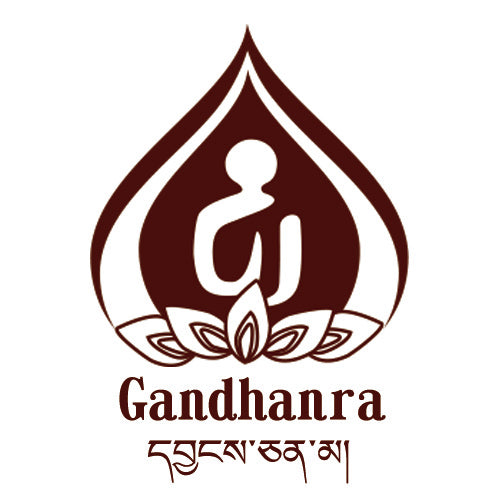Bhaisajyaguru,Medicine Buddha
Bhaisajyaguru,Medicine Buddha
⏱Vintage:
☞Handmade:
⚒Materials:
☲Size:
Couldn't load pickup availability
?This unique Bhaisajyaguru Tsa-Tsa is made by Tibetan craftsmen in Hepo Township, Baiyu County.
? With this exquisite mold, you can use clay to make your own Buddha statue as a decoration or gift.
The statue that you make from your moulds can be left plain or painted.
You can learn how to make your statue with this video
https://youtu.be/_gJcNP-ksJI
The text surrounding the Buddha statue is the Tibetan version of the Medicine Buddha Mantra:
??????????????????? ??????????????????????????????????????? ???????????? ??????????????????????? ??????? ???????????????????????? ??????????????? ??????????????????????????????????
The Sanskrit version is as follows:
OM NAMO BHAGAVATE BHEKHANDZE/
GURU BAIDRUYA/ PRABHA RAJAYA/ TATHAGATAYA/
ARHATE SAMYAKSAM BUDDHAYA
TADYATHA /
OM BHEKHANDZYE BHEKHANDZYE MAHA BHEKHANDZYE [BHEKHANDZYE] / RADZA SAMUDGATE SOHA
Recite 3 times both sets of mantras then recite
one mala of the mantras in black
Chanting the Medicine Buddha¡¯s mantra is incredibly beneficial when praying for someone who is ill, who is suffering from a terminal disease or who may be dying. If you are the one who is ill, chant one mala of? the Medicine Buddha¡¯s mantra (108 times) once in the morning and once in the evening. For someone ill, recite mantras into a tape & play continouly in the room where he/she is resting.
? SPECIFICATIONS
Material: copper
Craft: Manual mold, pouring
Color:Brass
Size:
Height:about 9.2cm / 3.6inches
Width :about 7.2cm / 2.8inches
Weight:about 440g / 15.5oz
?HOW TO USE
1. Oil the mold to prevent the clay from sticking
2. Place the mold on the prepared clay
3. Press or hammer the mold hard to shape the clay and take out the blank
4. Dry the blank naturally, let it dry completely
5. (Optional) Bake it in the oven to enhance its hardness, just like pottery
6. (Optional) You can even paint it yourself.
?You'll get 1pc Buddha statue mold as pictures shown.
?ABOUT TSA TSA
Tsa Tsa (Tibetan: ????, Willy: tsha tsha; Sanskrit: satch¨¡ya; Pali: sacch¨¡ya or sacch¨¡ha), a small mold-releasing clay sculpture in Tibetan Buddhism.
Tsa Tsa originated from India and was introduced to Tibet in the seventh century. It is extruded through a metal mold, and the cement is mixed with wheat grains, treasure powder, spices or the ashes of the monk. The patterns on it were mainly in Indian style in the early days, such as the Sky Tower, Gate Tower, Bodhi Pagoda, and the mantras of the Prajna Paramita Heart Sutra. Later, Tibet began to make its own molds, and the patterns of gods and Buddha images and the six-character mantra began to replace the earlier Indian style.
Tsa Tsa is generally placed in the pagoda as a stupa, or placed in a special "Tsa Tsa kang", or enshrined in temple halls, mani piles, monks' cultivation caves and other places.
?ABOUT Bhaisajyaguru
Bhaisajya is the Buddha of healing and medicine in Mahayana Buddhism. Commonly referred to as the "Medicine Buddha", he is described as a doctor who cures dukkha (suffering) using the medicine of his teachings.
Bhaisajyaguru is Medicine Master and King of Lapis Lazuli Light and the Buddha of healing and medicine in Mahayana Buddhism. Commonly referred to as the "Medicine Buddha", he is described as a doctor who cures dukkha (suffering) using the medicine of his teachings.
Bhaisajyaguru's original name and title was raja (King), but Xuanzang translated it as Tathagata (Buddha). Subsequent translations and commentaries followed Xuanzang in describing him as a Buddha. The image of Bhaisajyaguru is usually expressed with a canonical Buddha-like form holding a gallipot and, in some versions, possessing blue skin. Though also considered to be a guardian of the East, in most cases Akshobhya is given that role. As an exceptional case, the honzon of Mount Koya's Kongobu Temple was changed from Akshobhya to Bhaisajyaguru.
?ABOUT GANDHANRA
We're artisans from Hepo Township, Baiyu County,Tibetan.
We use ancient Tibetan handicrafts to make Tibetan Buddhist instruments.
All our crafts are directly handmade from Tibet.
When you purchase this craft it helps and support our artisan and our families in Tibet.
Your support is highly appreciated.
?Packaging &Shipping:
As per our Product nature, we do the packaging. For every single product, we do the bubble wrapping along with the paper carton boxes is also used for more safety. In the case of heavy products, we also use wooden boxes too for more safe packaging and sent for the shipping process.
?Feedback:
Our goal is to make sure my customer is happy and satisfied when you shopping with us. Please contact or email before leaving negative feedback.
We will try out best to solve our issues. Please give us the chance to resolve any problem.
?Notice:
1.Please allow 1-2mm error due to manual measurement.
2.The color may have different as the difference display.
3.Please make sure you do not mind before you bid.
THANK YOU FOR purchasing our product.











